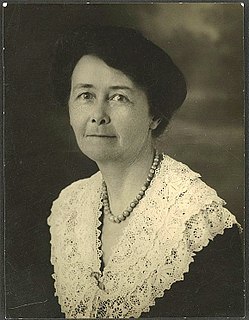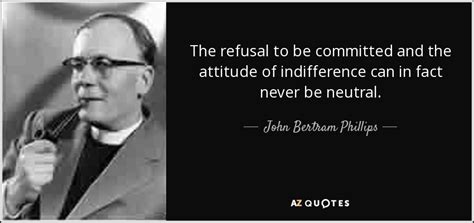A Quote by Sam Smith
A man may act as proxy for his own relatives; the ordinances of the Gospel which were laid out before the foundations of the world have thus been fulfilled by them, and we may be baptized for those whom we have much friendship for; but it must first be revealed to the man of God, lest we should run too far.
Related Quotes
The problem of reconciling human suffering with the existence of a God who loves, is only insoluble so long as we attach a trivial meaning to the word "love", and look on things as if man were the centre of them. Man is not the centre. God does not exist for the sake of man. Man does not exist for his own sake. "Thou hast created all things, and for thy pleasure they are and were created." We were made not primarily that we may love God (though we were made for that too) but that God may love us, that we may become objects in which the divine love may rest "well pleased".
First therefore let us seek the dignity of knowledge in the archetype or first platform, which is in the attributes and acts of God, as far as they are revealed to man and may be observed with sobriety; wherein we may not seek it by the name of Learning; for all Learning is Knowledge acquired, and all Knowledge in God is original: and therefore we must look for it by another name, that of Wisdom or Sapience, as the Scriptures call it.
These principles laid down as in variable rules: that one must pay a card sharper, but need not pay a tailor; that one must never tell a lie to a man, but one may to a woman; that one must never cheat any one, but one may a husband; that one must never pardon an insult, but one may give one and so on. These principles were possibly not reasonable and not good, but they were of unfailing certainty, and so long as he adhered to them, Vronsky felt that his heart was at peace and he could hold his head up.
Whatever man may stand, whatever he may do, to whatever he may apply his hand - in agriculture, in commerce, and in industry, or his mind, in the world of art, and science - he is, in whatsoever it may be, constantly standing before the face of God. He is employed in the service of his God. He has strictly to obey his God. And above all, he has to aim at the glory of his God.
No man must encroach upon my province, nor I upon his. He may advise me, moderately and without pertinaciousness, but he must not expect to dictate to me. He may censure me freely and without reserve; but he should remember that I am to act by my deliberation and not his. I ought to exercise my talents for the benefit of others; but that exercise must be the fruit of my own conviction; no man must attempt to press me into the service.
The man who fears to be alone will never be anything but lonely, no matter how much he may surround himself with people. But the man who learns, in solitude and recollection, to be at peace with his own loneliness, and to prefer its reality to the illusion of merely natural companionship, comes to know the invisible companionship of God. Such a one is alone with God in all places, and he alone truly enjoys the companionship of other men, because he loves them in God in Whom their presence is not tiresome, and because of Whom his own love for them can never know satiety.
To lay hold of and receive the gospel by a true and saving faith is an act of the soul that has been made a new creature, which is the workmanship of God... Wherefore whoever receiveth the grace that is tendered in the gospel, they must be quickened by the power of God, their eyes must be opened, their understandings illuminated, their ears unstopped, their hearts circumcised, their wills also rectified, and the Son of God revealed in them.
Every man should write a brief history of his life: his parentage, his birth, his religion, when he was baptized and by whom, when ordained, what to, and by whom-give a brief sketch of all his missions and of all his official acts and the dealings of God with him. Then if he were to die and the historians wished to publish his history, they would have something to go by.



































